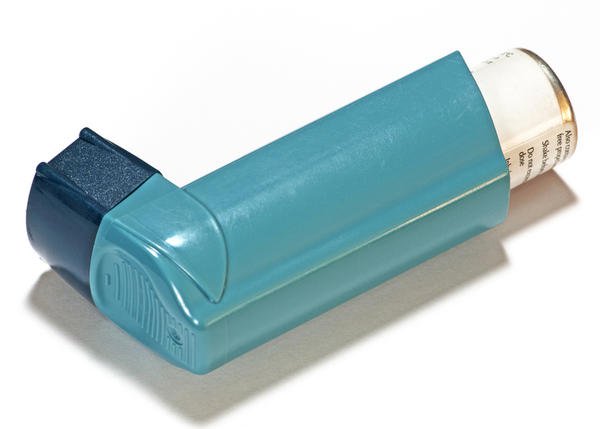World Asthma Day: What is asthma, symptoms and treatment
Updated | By Charis Apelgren-Coleman
World Asthma Day – May 2 – is a day dedicated to the prevention and treatment of asthma. It is thought that as many as 300 million people suffer from some form of asthma in the world – and there are 250,000 deaths each year linked to the disease. Here is everything you need to know.

Your personal triggers can be very different from those of another person with asthma. But in every case, it's important to avoid your triggers in order to keep airway inflammation to a minimum and reduce the symptoms.
Classic symptoms include coughing, wheezing, tightness in the chest, and increased effort during breathing, increased respiratory rate and inefficient gaseous exchange.
Many believe that asthma is a psychosomatic disease. Medical experts now agree this is a myth, although they concede that stress can exacerbate the condition. There is also the question about genetics.
World Asthma day is designed to improve awareness of the condition with the view to ensuring those with the condition are able to get diagnosed.
The day is organised by the Global Initiative for the Prevention of Asthma with the overall aim to decrease the number of people who die from asthma attacks.
What are the Asthma triggers?
If you or a loved one has asthma, it's important to understand the many asthma triggers. Website http://www.asthma.ca lists a few of the common triggers:
Inflammatory Triggers
Inflammatory (allergic) triggers can cause inflammation of the lungs' airways or tightening of the airways' muscles. Inflammatory triggers include:
• Dust mites
• Animals
• Cockroaches
• Moulds
• Pollens
• Viral infections
• Certain air pollutants
Symptom Triggers
Symptom (non-allergic) triggers generally do not cause inflammation, but they can provoke "twitchy" airways, especially if they're already inflamed. Symptom triggers include:
• Smoke
• Exercise
• Cold air
• Chemical fumes and other strong-smelling substances like perfumes
• Certain food additives
• Certain air pollutants
• Intense emotions
READ: How to clear a stuffy nose yourself
According to a report by the Global Initiative for Asthma (GINA), South Africa has the world’s fourth highest asthma death rate among five to 35 year olds. Of the estimated 3.9 million South Africans with asthma, 1.5% die of this condition annually.
What to do if a person has an asthma attack?
During an asthma attack, the muscles around the bronchial tubes tighten and swell which narrows the air passages and thus makes it difficult for the person to breathe.
Here are six things to do if you do not have an inhaler with you, as listed on https://www.healthxchange.sg/:
• Sit upright. Bending over or lying down can constrict your breathing even more.
• Take long, deep breaths. This helps to slow down your breathing and prevent hyperventilation. Breathe in through your nose and breathe out through your mouth.
• Stay calm. Staying calm may prevent further tightening of your chest muscles and make your breathing easier.
• Get away from the trigger. Get away from the trigger as soon as possible and go to an air-conditioned environment or any place with clean air.
• Drink a hot caffeinated beverage. Hot caffeinated drinks like coffee can help to open up the airways slightly, providing some relief for an hour or two.
• Seek emergency medical help. If the wheezing, coughing and breathing difficulties do not subside after a period of rest, seek immediate medical attention.
READ: Five foods that are good for your skin
About asthma medicines:
• People with asthma need relievers to treat the bronchospasm. Examples of relievers include Asthavent, Ventolin, Venteze and Berotec.
• Medicines that treat the inflammation are referred to as controllers. Examples of controllers include Budeflam, Beclate, Flixotide, Ventzone, Inflammide and Singulair.
For more information, visit the website of the National Asthma Education Programme (http://asthmasa.org/). The NAEP is a non-profit organisation that aims to disseminate impartial information about asthma diagnosis and treatment to health professionals and the South African public. . You can also call 021 830 5937, or 082 494 6617 or fax 086 533 4105.
NB: Please consult a medical professional for specific medical advice.
Show's Stories
-
SA singer Lloyiso performs Teddy Swims' 'Lose Control'
The talented South African musician Lloyiso recently took to the Friday ...
Breakfast with Martin Bester 18 minutes ago -
Toddler’s first kiss leaves dad speechless
They say a father's greatest blessing is having a daughter, but that can...
The Workzone with Alex Jay an hour ago